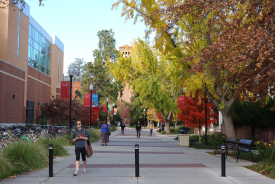It seems like the future looks positive for students who wants to get a college education as more and more colleges and universities help raise funding for them. This funding is meant to reward high school students who have shown exceptional performance in school.
Some of the colleges and universities who have joined the program include Harvey Mudd College, the University of Chicago, Grinnell College, the University of Pennsylvania, and Washington University in St. Louis. These universities have partnered with Raise.me, a platform that raises funding for incoming college students.
All students who are in Grade 9 up are eligible to enter but the recipients will be chosen based on their score and achievements at school. That means, if a student works hard at school to earn a high score and gets involved in other activities, such as sports and clubs, they can earn micro-scholarships based on their achievements.
For example, the University of Pennsylvania could reward a student with $150 if he or she gets an "A" in algebra. However, each educational institution has different amounts for the reward of similar achievements. These micro-scholarships can range from as low as $100 up to $3,000 and are redeemable once the student enrolls in a partner college.
According to a blog post by Raise.me, more than 700,000 students have registered and been using the platform to raise money for their college education. The post also revealed that students usually receive a total of around $20K reward from different universities. To date, it has already raised more than $1 billion in scholarships, focusing more on low-income and first-generation students.
Raise.me, which was launched in 2014, was happy to serve as a vehicle that motivates students to pursue a college education as well as a platform that educate students what the college process is. As Raise.me co-founder George Kirkland said, they are happy to remove the "perceived financial barriers" that keep most of the low-income and first-generation students away from college.
© 2025 University Herald, All rights reserved. Do not reproduce without permission.








